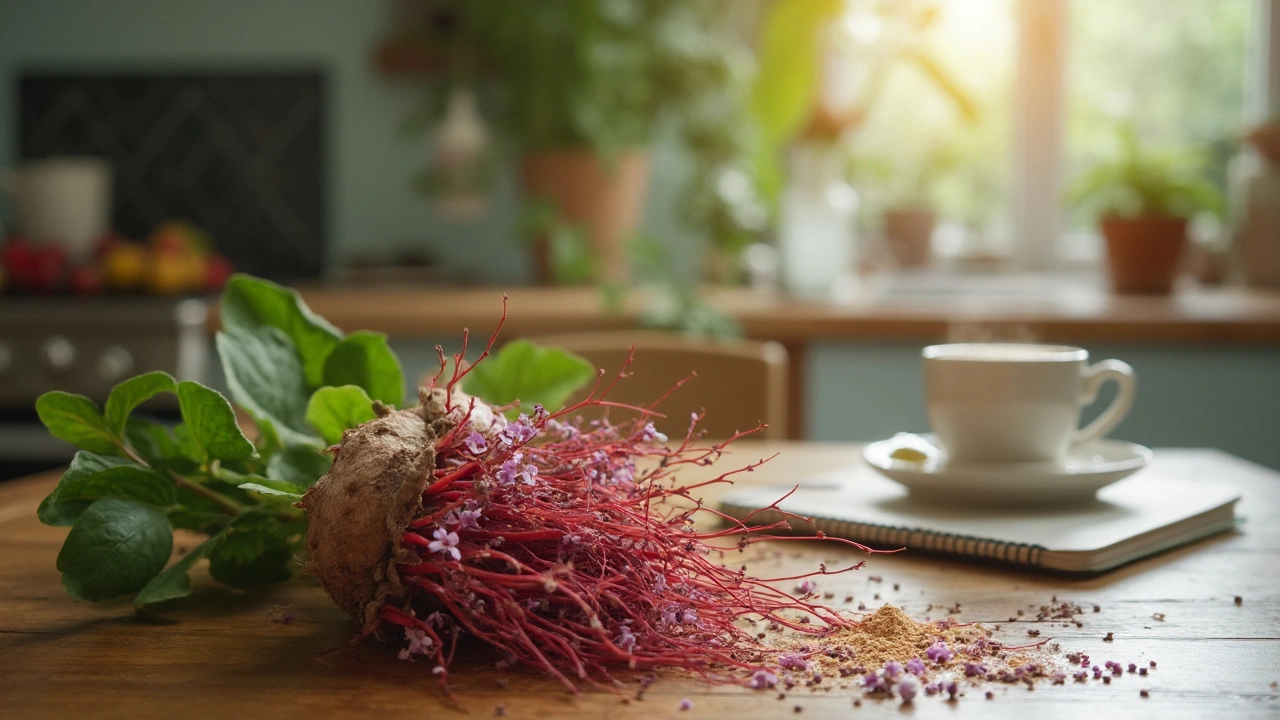Rhatany: What It Is, Benefits, and How to Use It Safely
Ever heard of rhatany? It’s a tough, thorny plant from South Africa that’s been used for centuries to treat wounds, sore gums, and digestive complaints. Today, herbal lovers still turn to rhatany for its anti‑inflammatory and astringent properties. If you’re curious about adding this herb to your routine, here’s a simple rundown of what it does, how to take it, and what to watch out for.
Traditional uses and modern evidence
Historically, people chewed the dried roots or made teas to stop bleeding and calm mouth ulcers. In folk medicine, rhatany was also used for diarrhea, sore throats, and even joint pain. Modern studies suggest the plant contains tannins, flavonoids, and alkaloids that can tighten tissue, reduce inflammation, and act as mild antioxidants. While research is still early, the findings line up with the old‑school uses.
How to take rhatany safely
There are three common ways to use rhatany: tea, tincture, and powder. For a tea, steep 1‑2 teaspoons of dried root in hot water for 10‑15 minutes. Drink up to three cups a day, but don’t exceed 10 cups total in a week. If you prefer a tincture, follow the manufacturer’s dosage—usually 20‑30 drops diluted in water, taken 2‑3 times daily. Powder can be mixed into smoothies or honey; start with a half‑teaspoon and see how you feel.
Because rhatany is a strong astringent, avoid it if you have ulcers, low blood pressure, or are on blood‑thinning medication. Pregnant or nursing women should skip it unless a healthcare professional says it’s okay. As with any herb, buy from reputable vendors that test for contaminants.
Speaking of reputable sources, our site also covers other supplements and medicines—like the benefits of kale extract, safe online pharmacy tips, and guides on lithium or tamsulosin. Those articles can help you compare rhatany with other options and make informed choices.
Bottom line: rhatany can be a handy natural remedy for minor mouth and skin issues, but it’s not a cure‑all. Start with low doses, monitor how you feel, and stop if you notice stomach upset, dizziness, or any weird reactions. When in doubt, ask a pharmacist or your doctor before adding it to your regimen.
Got more questions about rhatany or other herbal supplements? Browse our other health guides or drop us a note—we love helping you stay on top of your wellness journey.

